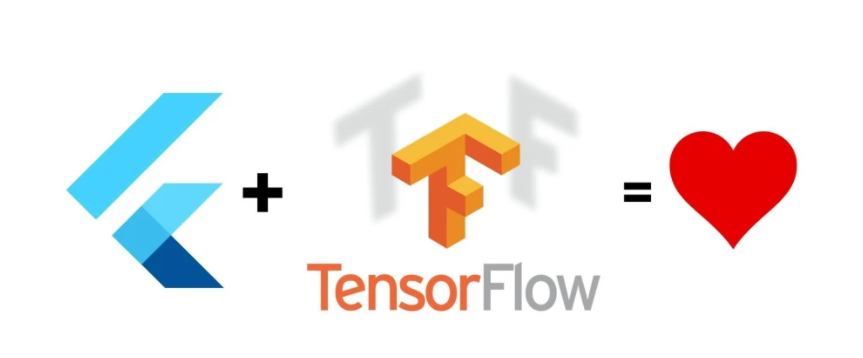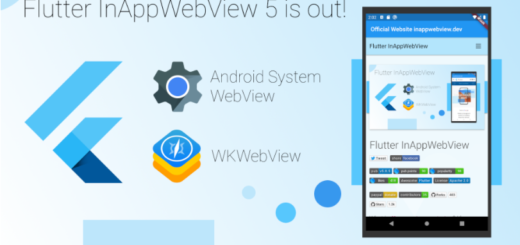A Flutter Plugin for Accessing TensorFlow Lite API, tflite
What is tflite?
A Tensorflow model is converted to a Tensorflow Lite flat buffer file using Tensorflow Lite Converter (. tflite). The client, which in our instance is a mobile device operating on iOS or Android or an embedded device, receives the Tensorflow Lite flat buffer file.
tflite is a Flutter plugin for accessing TensorFlow Lite API. Supports image classification, object detection (SSD and YOLO), Pix2Pix and Deeplab and PoseNet on both iOS and Android.

Installation
Add tflite as a dependency in your pubspec.yaml file.
Android
In android/app/build.gradle, add the following setting in android block.
aaptOptions {
noCompress 'tflite'
noCompress 'lite'
}
iOS
Solutions to build errors on iOS:
- ‘vector’ file not found”Open
ios/Runner.xcworkspacein Xcode, click Runner > Tagets > Runner > Build Settings, searchCompile Sources As, change the value toObjective-C++ - ‘tensorflow/lite/kernels/register.h’ file not foundThe plugin assumes the tensorflow header files are located in path “tensorflow/lite/kernels”.However, for early versions of tensorflow the header path is “tensorflow/contrib/lite/kernels”.Use
CONTRIB_PATHto toggle the path. Uncomment//#define CONTRIB_PATHfrom here: https://github.com/shaqian/flutter_tflite/blob/master/ios/Classes/TflitePlugin.mm#L1
Breaking changes
Since 1.1.0:
- iOS TensorFlow Lite library is upgraded from TensorFlowLite 1.x to TensorFlowLiteObjC 2.x. Changes to native code are denoted with
TFLITE2.
Since 1.0.0:
- Updated to TensorFlow Lite API v1.12.0.
- No longer accepts parameter
inputSizeandnumChannels. They will be retrieved from input tensor. numThreadsis moved toTflite.loadModel.
Usage
- Create a
assetsfolder and place your label file and model file in it. Inpubspec.yamladd:
assets:
- assets/labels.txt
- assets/mobilenet_v1_1.0_224.tflite
- Import the library:
import 'package:tflite/tflite.dart';
- Load the model and labels:
String res = await Tflite.loadModel( model: "assets/mobilenet_v1_1.0_224.tflite", labels: "assets/labels.txt", numThreads: 1, // defaults to 1 isAsset: true, // defaults to true, set to false to load resources outside assets useGpuDelegate: false // defaults to false, set to true to use GPU delegate );
- See the section for the respective model below.
- Release resources:
await Tflite.close();
GPU Delegate
When using GPU delegate, refer to this step for release mode setting to get better performance.
Image Classification
- Output format:
{
index: 0,
label: "person",
confidence: 0.629
}
- Run on image:
var recognitions = await Tflite.runModelOnImage( path: filepath, // required imageMean: 0.0, // defaults to 117.0 imageStd: 255.0, // defaults to 1.0 numResults: 2, // defaults to 5 threshold: 0.2, // defaults to 0.1 asynch: true // defaults to true );
- Run on binary:
var recognitions = await Tflite.runModelOnBinary(
binary: imageToByteListFloat32(image, 224, 127.5, 127.5),// required
numResults: 6, // defaults to 5
threshold: 0.05, // defaults to 0.1
asynch: true // defaults to true
);
Uint8List imageToByteListFloat32(
img.Image image, int inputSize, double mean, double std) {
var convertedBytes = Float32List(1 * inputSize * inputSize * 3);
var buffer = Float32List.view(convertedBytes.buffer);
int pixelIndex = 0;
for (var i = 0; i < inputSize; i++) {
for (var j = 0; j < inputSize; j++) {
var pixel = image.getPixel(j, i);
buffer[pixelIndex++] = (img.getRed(pixel) - mean) / std;
buffer[pixelIndex++] = (img.getGreen(pixel) - mean) / std;
buffer[pixelIndex++] = (img.getBlue(pixel) - mean) / std;
}
}
return convertedBytes.buffer.asUint8List();
}
Uint8List imageToByteListUint8(img.Image image, int inputSize) {
var convertedBytes = Uint8List(1 * inputSize * inputSize * 3);
var buffer = Uint8List.view(convertedBytes.buffer);
int pixelIndex = 0;
for (var i = 0; i < inputSize; i++) {
for (var j = 0; j < inputSize; j++) {
var pixel = image.getPixel(j, i);
buffer[pixelIndex++] = img.getRed(pixel);
buffer[pixelIndex++] = img.getGreen(pixel);
buffer[pixelIndex++] = img.getBlue(pixel);
}
}
return convertedBytes.buffer.asUint8List();
}- Run on image stream (video frame):
Works with camera plugin 4.0.0. Video format: (iOS) kCVPixelFormatType_32BGRA, (Android) YUV_420_888.
var recognitions = await Tflite.runModelOnFrame(
bytesList: img.planes.map((plane) {return plane.bytes;}).toList(),// required
imageHeight: img.height,
imageWidth: img.width,
imageMean: 127.5, // defaults to 127.5
imageStd: 127.5, // defaults to 127.5
rotation: 90, // defaults to 90, Android only
numResults: 2, // defaults to 5
threshold: 0.1, // defaults to 0.1
asynch: true // defaults to true
);Object Detection
- Output format:
x, y, w, h are between [0, 1]. You can scale x, w by the width and y, h by the height of the image.
{
detectedClass: "hot dog",
confidenceInClass: 0.123,
rect: {
x: 0.15,
y: 0.33,
w: 0.80,
h: 0.27
}
}
SSD MobileNet:
- Run on image:
var recognitions = await Tflite.detectObjectOnImage( path: filepath, // required model: "SSDMobileNet", imageMean: 127.5, imageStd: 127.5, threshold: 0.4, // defaults to 0.1 numResultsPerClass: 2,// defaults to 5 asynch: true // defaults to true );
- Run on binary:
var recognitions = await Tflite.detectObjectOnBinary( binary: imageToByteListUint8(resizedImage, 300), // required model: "SSDMobileNet", threshold: 0.4, // defaults to 0.1 numResultsPerClass: 2, // defaults to 5 asynch: true // defaults to true );
- Run on image stream (video frame):
Works with camera plugin 4.0.0. Video format: (iOS) kCVPixelFormatType_32BGRA, (Android) YUV_420_888.
var recognitions = await Tflite.detectObjectOnFrame(
bytesList: img.planes.map((plane) {return plane.bytes;}).toList(),// required
model: "SSDMobileNet",
imageHeight: img.height,
imageWidth: img.width,
imageMean: 127.5, // defaults to 127.5
imageStd: 127.5, // defaults to 127.5
rotation: 90, // defaults to 90, Android only
numResults: 2, // defaults to 5
threshold: 0.1, // defaults to 0.1
asynch: true // defaults to true
);Tiny YOLOv2:
- Run on image:
var recognitions = await Tflite.detectObjectOnImage( path: filepath, // required model: "YOLO", imageMean: 0.0, imageStd: 255.0, threshold: 0.3, // defaults to 0.1 numResultsPerClass: 2,// defaults to 5 anchors: anchors, // defaults to [0.57273,0.677385,1.87446,2.06253,3.33843,5.47434,7.88282,3.52778,9.77052,9.16828] blockSize: 32, // defaults to 32 numBoxesPerBlock: 5, // defaults to 5 asynch: true // defaults to true );
- Run on binary:
var recognitions = await Tflite.detectObjectOnBinary( binary: imageToByteListFloat32(resizedImage, 416, 0.0, 255.0), // required model: "YOLO", threshold: 0.3, // defaults to 0.1 numResultsPerClass: 2,// defaults to 5 anchors: anchors, // defaults to [0.57273,0.677385,1.87446,2.06253,3.33843,5.47434,7.88282,3.52778,9.77052,9.16828] blockSize: 32, // defaults to 32 numBoxesPerBlock: 5, // defaults to 5 asynch: true // defaults to true );
- Run on image stream (video frame):
Works with camera plugin 4.0.0. Video format: (iOS) kCVPixelFormatType_32BGRA, (Android) YUV_420_888.
var recognitions = await Tflite.detectObjectOnFrame(
bytesList: img.planes.map((plane) {return plane.bytes;}).toList(),// required
model: "YOLO",
imageHeight: img.height,
imageWidth: img.width,
imageMean: 0, // defaults to 127.5
imageStd: 255.0, // defaults to 127.5
numResults: 2, // defaults to 5
threshold: 0.1, // defaults to 0.1
numResultsPerClass: 2,// defaults to 5
anchors: anchors, // defaults to [0.57273,0.677385,1.87446,2.06253,3.33843,5.47434,7.88282,3.52778,9.77052,9.16828]
blockSize: 32, // defaults to 32
numBoxesPerBlock: 5, // defaults to 5
asynch: true // defaults to true
);Pix2Pix
Thanks to RP from Green Appers
- Output format:The output of Pix2Pix inference is Uint8List type. Depending on the
outputTypeused, the output is:- (if outputType is png) byte array of a png image
- (otherwise) byte array of the raw output
- Run on image:
var result = await runPix2PixOnImage( path: filepath, // required imageMean: 0.0, // defaults to 0.0 imageStd: 255.0, // defaults to 255.0 asynch: true // defaults to true );
- Run on binary:
var result = await runPix2PixOnBinary( binary: binary, // required asynch: true // defaults to true );
- Run on image stream (video frame):
var result = await runPix2PixOnFrame(
bytesList: img.planes.map((plane) {return plane.bytes;}).toList(),// required
imageHeight: img.height, // defaults to 1280
imageWidth: img.width, // defaults to 720
imageMean: 127.5, // defaults to 0.0
imageStd: 127.5, // defaults to 255.0
rotation: 90, // defaults to 90, Android only
asynch: true // defaults to true
);Deeplab
- Output format:The output of Deeplab inference is Uint8List type. Depending on the
outputTypeused, the output is:- (if outputType is png) byte array of a png image
- (otherwise) byte array of r, g, b, a values of the pixels
- Run on image:
var result = await runSegmentationOnImage( path: filepath, // required imageMean: 0.0, // defaults to 0.0 imageStd: 255.0, // defaults to 255.0 labelColors: [...], // defaults to https://github.com/shaqian/flutter_tflite/blob/master/lib/tflite.dart#L219 outputType: "png", // defaults to "png" asynch: true // defaults to true );
- Run on binary:
var result = await runSegmentationOnBinary( binary: binary, // required labelColors: [...], // defaults to https://github.com/shaqian/flutter_tflite/blob/master/lib/tflite.dart#L219 outputType: "png", // defaults to "png" asynch: true // defaults to true );
- Run on image stream (video frame):
var result = await runSegmentationOnFrame(
bytesList: img.planes.map((plane) {return plane.bytes;}).toList(),// required
imageHeight: img.height, // defaults to 1280
imageWidth: img.width, // defaults to 720
imageMean: 127.5, // defaults to 0.0
imageStd: 127.5, // defaults to 255.0
rotation: 90, // defaults to 90, Android only
labelColors: [...], // defaults to https://github.com/shaqian/flutter_tflite/blob/master/lib/tflite.dart#L219
outputType: "png", // defaults to "png"
asynch: true // defaults to true
);PoseNet
Model is from StackOverflow thread.
- Output format:
x, y are between [0, 1]. You can scale x by the width and y by the height of the image.
[ // array of poses/persons
{ // pose #1
score: 0.6324902,
keypoints: {
0: {
x: 0.250,
y: 0.125,
part: nose,
score: 0.9971070
},
1: {
x: 0.230,
y: 0.105,
part: leftEye,
score: 0.9978438
}
......
}
},
{ // pose #2
score: 0.32534285,
keypoints: {
0: {
x: 0.402,
y: 0.538,
part: nose,
score: 0.8798978
},
1: {
x: 0.380,
y: 0.513,
part: leftEye,
score: 0.7090239
}
......
}
},
......
]
- Run on image:
var result = await runPoseNetOnImage( path: filepath, // required imageMean: 125.0, // defaults to 125.0 imageStd: 125.0, // defaults to 125.0 numResults: 2, // defaults to 5 threshold: 0.7, // defaults to 0.5 nmsRadius: 10, // defaults to 20 asynch: true // defaults to true );
- Run on binary:
var result = await runPoseNetOnBinary( binary: binary, // required numResults: 2, // defaults to 5 threshold: 0.7, // defaults to 0.5 nmsRadius: 10, // defaults to 20 asynch: true // defaults to true );
- Run on image stream (video frame):
var result = await runPoseNetOnFrame(
bytesList: img.planes.map((plane) {return plane.bytes;}).toList(),// required
imageHeight: img.height, // defaults to 1280
imageWidth: img.width, // defaults to 720
imageMean: 125.0, // defaults to 125.0
imageStd: 125.0, // defaults to 125.0
rotation: 90, // defaults to 90, Android only
numResults: 2, // defaults to 5
threshold: 0.7, // defaults to 0.5
nmsRadius: 10, // defaults to 20
asynch: true // defaults to true
);Example
Prediction in Static Images
Refer to, Flutter Plugin tflite Example.
Real-time detection
Refer to, Real Time Object Detection in Flutter using camera and tflite Plugin.
Run test cases
flutter test test/tflite_test.dart
GitHub
Source Code: flutter_tflite.



